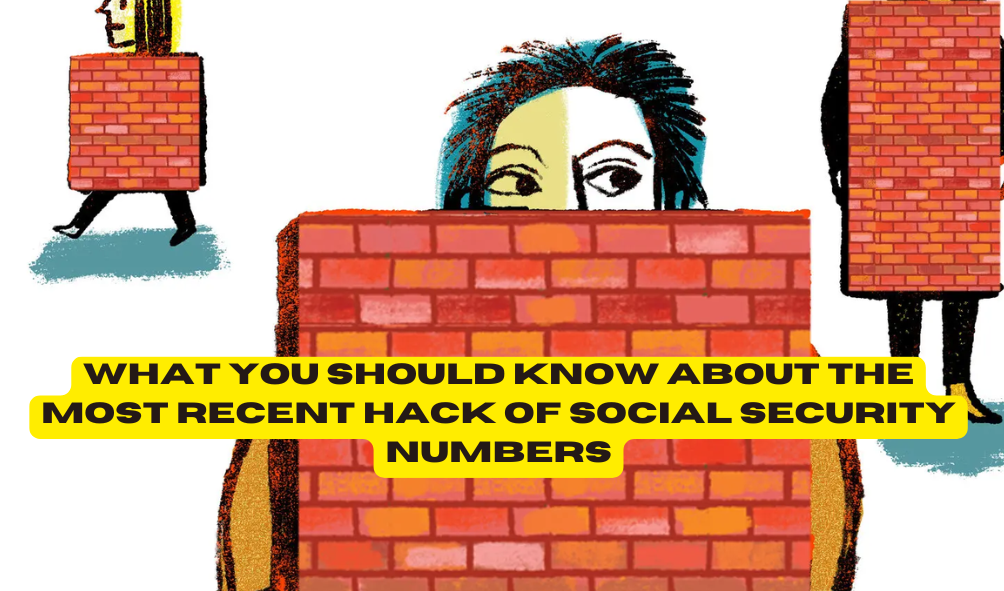
Table of Contents
When it comes to protecting our personal information, nothing feels more important than our Social Security numbers (SSNs). These nine digits are tied to almost everything we do—applying for jobs, opening bank accounts, and even filing taxes. That’s why hearing about a hack involving Social Security numbers can be so alarming. If you’ve been worried about the most recent hack, you’re not alone. Here’s what you need to know to keep yourself safe.
What Happened in the Recent Hack?
Recently, a major data breach exposed the Social Security numbers of millions of people. This breach occurred when hackers managed to break into the systems of a company that handles sensitive data, including SSNs, for various businesses and government agencies. Once inside, the hackers were able to steal a large amount of personal information, including Social Security numbers, names, addresses, and even financial details.
This kind of information is extremely valuable to cybercriminals. They can use it to commit identity theft, open credit accounts in your name, or even access your bank accounts. The impact can be devastating and can take years to fully recover from.
Why Are Social Security Numbers So Important?
Your Social Security number is like a key that unlocks your identity. It’s used to verify who you are when you apply for credit, file your taxes, or claim government benefits. Because it’s so closely tied to your identity, losing control of your SSN can lead to serious problems.
For example, if someone steals your Social Security number, they could use it to apply for loans or credit cards in your name. You might not even know it’s happening until you start getting bills for purchases you never made or your credit score takes a hit.
What Should You Do if Your SSN Was Hacked?
If you think your Social Security number might have been part of this recent hack, it’s important to act quickly to protect yourself. Here are some steps you can take:
- Check Your Credit Reports: One of the first things you should do is check your credit reports for any suspicious activity. You’re entitled to a free credit report from each of the three major credit bureaus (Equifax, Experian, and TransUnion) once a year. Look for any accounts or inquiries you don’t recognize.
- Consider a Credit Freeze: A credit freeze prevents new creditors from accessing your credit report, which makes it harder for someone to open an account in your name. It’s free to place and lift a freeze, and it doesn’t affect your credit score.
- Set Up Fraud Alerts: A fraud alert warns creditors that you may have been a victim of identity theft and that they should take extra steps to verify anyone trying to open an account in your name. You can set up a fraud alert with any of the three credit bureaus, and they’ll notify the others.
- Monitor Your Accounts Closely: Keep an eye on your bank and credit card statements for any unauthorized transactions. If you see something suspicious, report it to your bank or credit card company immediately.
- File Your Taxes Early: Tax-related identity theft is a common problem after SSNs are stolen. Filing your taxes early reduces the chances of a thief filing a fraudulent return in your name.
- Report Identity Theft: If you discover that your identity has been stolen, report it to the Federal Trade Commission (FTC) at IdentityTheft.gov. They’ll guide you through the steps to recover your identity.
How to Protect Your SSN Moving Forward
Even if your Social Security number wasn’t affected by this hack, it’s a good idea to take steps to protect it in the future. Here are some tips:
- Don’t Share Your SSN Unnecessarily: Only give out your Social Security number when absolutely necessary. Be cautious about sharing it over the phone, online, or in person, especially with companies or individuals you don’t know.
- Shred Sensitive Documents: Don’t just throw away documents that contain your SSN or other personal information. Shred them to keep your information safe from dumpster divers.
- Use Strong Passwords: Protect your online accounts with strong, unique passwords. Consider using a password manager to keep track of them.
- Be Aware of Phishing Scams: Be cautious about emails or phone calls that ask for your personal information. Scammers often pose as legitimate companies or government agencies to trick you into revealing your SSN.
Conclusion
The recent hack involving Social Security numbers is a reminder of how important it is to protect our personal information. While it can be scary to think about someone stealing your identity, there are steps you can take to reduce your risk and protect yourself. By staying vigilant and taking action quickly if your SSN is compromised, you can minimize the potential damage and keep your identity safe.
For any changes or removal mail here
read the full covered article here: https://www.nytimes.com/2024/08/15/business/social-security-numbers-stolen-hack.html#:~:text=In%20April%2C%20Hackmanac%2C%20a%20cybersecurity,company%20that%20does%20background%20checks.
need to get featured in SIgned to GOD. Check here: https://signedtogod.com/contact-us/